From 'bloodied knees' to the House of Commons as a disabled MP
- Published
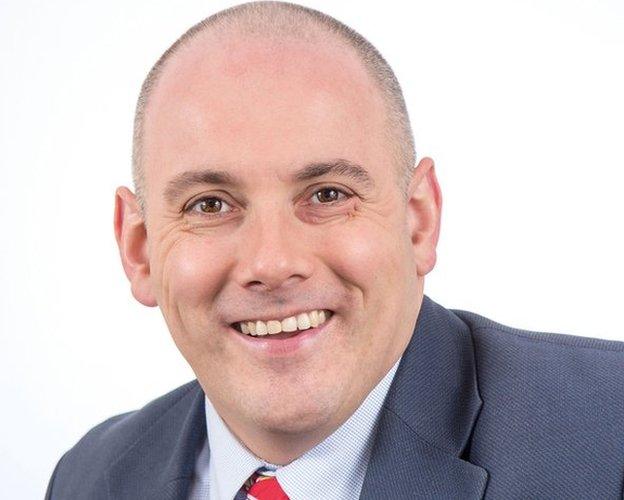
Conservative MP Robert Halfon says having a disability means he has been forced to work twice as hard to get to where he is.
Before the general election, all Robert Halfon was hoping for was to be re-elected as member of parliament for Harlow. He has since been made a deputy Chairman of the Conservative Party and a minister without portfolio.
Now 46, Halfon was born with mild cerebral palsy. He has since developed osteoarthritis due in part to many operations, and walks using crutches.
As a child, Halfon could not walk at all for some time. He says he can't remember how he did get around because he has unconsciously blanked out many childhood memories. He knows his father took him all over the world to see doctors who might help him become mobile.
All he does remember is that when he finally did walk it was on tiptoes, and jokes that he would have made a good ballet dancer. He fell over a lot in those days, and though he's quick to point out he always got back up, his knees were always "full of blood".
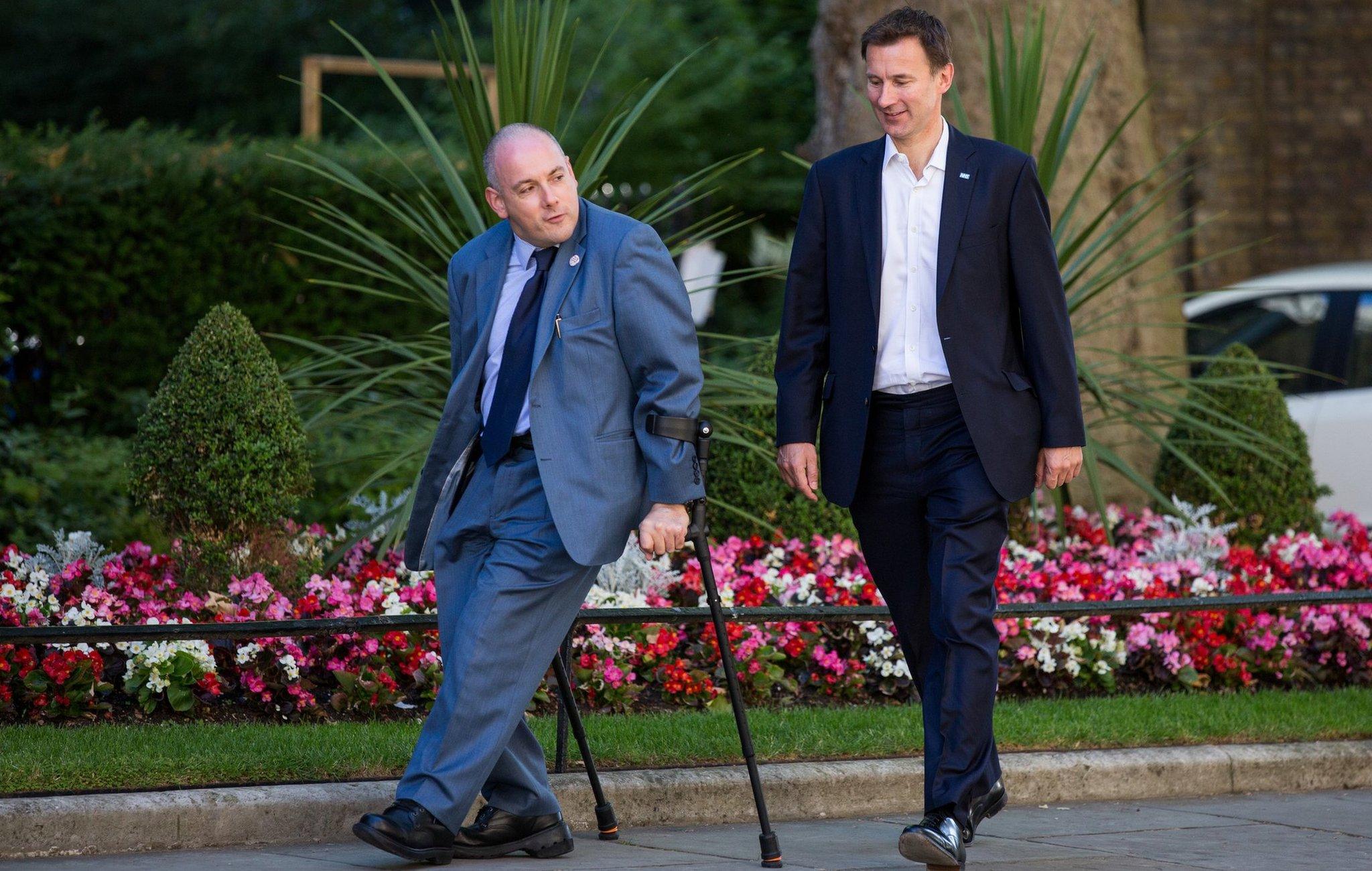
Robert Halfon attends a meeting of Government cabinet members with Secretary of State for Health, Jeremy Hunt © Getty Images
Halfon doesn't like the tag "disabled", it irritates him. He says although his legs are "messed up", he's never thought of himself as disabled, preferring "differently-abled", taking the emphasis away from his disability.
"Someone upstairs decided I wouldn't be an Olympic runner. They made me a Tory MP instead," he says.
But even becoming a politician has its physical challenges and he says he has had to work twice as hard to get to where he is, on the way finding creative ways around some of the tasks expected of him.
During the lead-up to the recent general election, one innovation was to engage with potential voters from behind a roadside stall which he set up by the A414 in his constituency - to avoid door-to-door canvassing. He says this approach has been 10 times more successful than traditional methods.
"One lady dropped off a big box of cakes for me, and a van who had been driving past for days giving me the V-sign, stopped. I thought they were going to kill me or do something, but instead, they got out, tapped me on the back and wished me luck," he says.
Halfon has earned himself a reputation for being a dedicated campaigner: cutting fuel duty, restricting energy companies from making excessive profits and free parking at NHS hospitals are some of the issues he has tackled as a Conservative MP. In 2014 Chancellor George Osborne made him his Parliamentary Private Secretary.
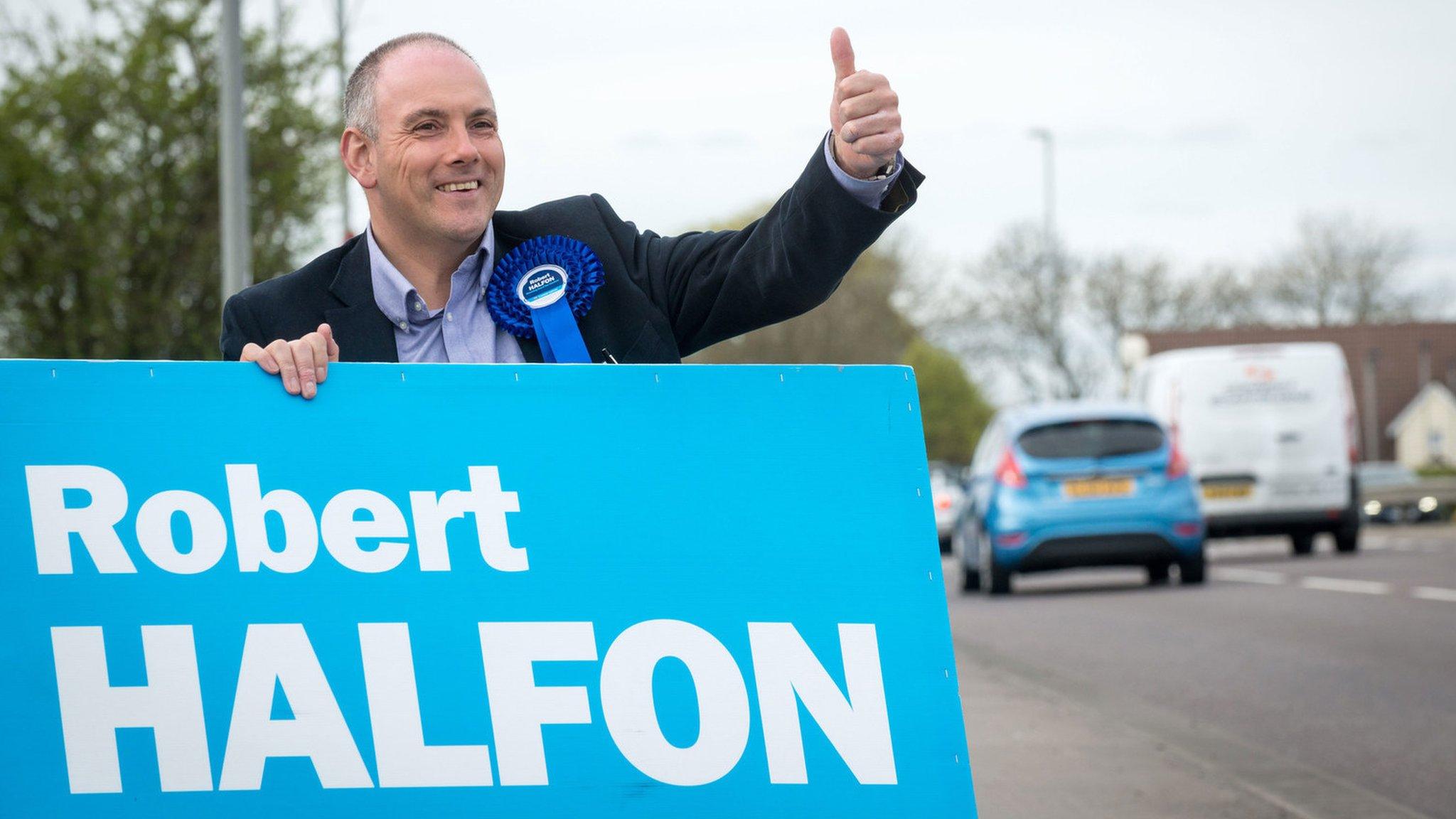
Robert Halfon has to take his disability into consideration when canvassing
Though positive discrimination policies can be used to help disabled people into jobs where representation is lacking, Halfon is opposed to them. He says if he thought any of his appointments were due to his disability, he would not have accepted them. And when challenged on the idea that benefits could be seen by some as being a form of positive discrimination - compensation for the extra costs of disability - Halfon rejects that definition. He takes the Conservative party's view that benefits are there to help and protect the elderly and most vulnerable, as well as to enable people to work if they are able.

Find out more
Robert Halfon spoke to Peter White on Radio 4's No Triumph No Tragedy
Listen to the interview on iPlayer

Halfon's grandfather was an Italian-Libyan Jew who resettled in England after Colonel Gaddafi's regime came to power. Originally a journalist, Halfon's father at one time sold editions of Encyclopaedia Britannica because he found he could earn more money that way.
The family also owned a fruit and vegetable wholesale business at Spitalfields Market in London where Halfon's father worked for a time. He had an office nearby and at one stage Robert worked there too.
He describes the journey from the family's home in north London to Spitalfields as difficult, involving many changes on public transport. His father insisted that no worker could ride with him in his car and made no allowances for his young disabled son, so Halfon made the same journey to and from work as any other employee - an ethos for which he says he is now grateful.
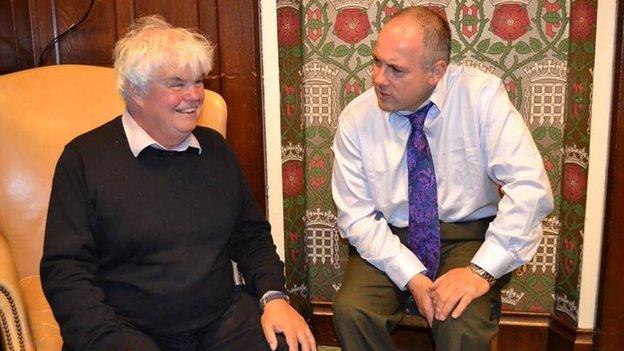
Robert Halfon spoke to Radio 4 presenter Peter White
When he precociously asked for a pay rise his father wouldn't give him one. He says, however, that when he received the agreed £50 each week, it felt like £5m to him because he was so proud of earning it.
Halfon did a number of jobs during and after university, including telesales for a double-glazing company and selling hotel group memberships.
He always chose to work in hotels in and around Westminster so he could be close to parliament and would be readily available to go to interviews for a job in politics. His first Westminster appointment was for a member of parliament one day a week. Lady Thatcher was a big influence on both he and his father, and he wanted to be an MP from the age of 10.
Displaying the same passion for his hobbies as he does for political campaigning, Halfon loves Chelsea Football Club, curry, clocks and watches. He says he can never walk past a jewellery shop without stopping to look at the watches in the window. It is fitting then, that his office is situated directly underneath the mechanical workings of the world's most famous clock, known as Big Ben. One of his proudest victories was thwarting the House of Commons authorities when they wanted to charge visitors £15 to walk up the 334 steps of Elizabeth Tower to hear the world's most famous bell ring.
Robert Halfon is Peter White's guest on No Triumph No Tragedy, BBC Radio 4, Wednesday 15 July. Listen again on the iPlayer.
Next story: Viewpoint: Does this Spastics Society statue start the right conversations?
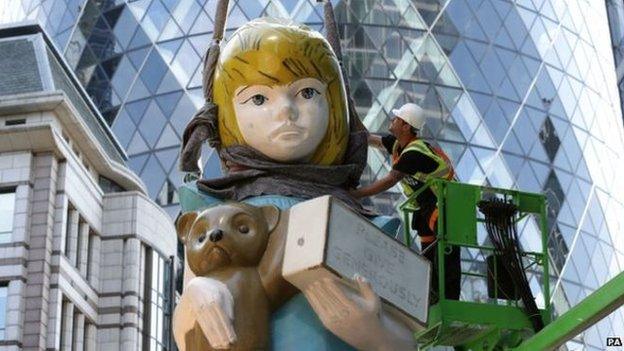
A giant sculpture of an old Spastics Society collection box has been erected in central London. It's aim is to trigger conversations about disability, but Kate Ansell doesn't think it helps. READ MORE
Follow @BBCOuch, external on Twitter and on Facebook, external or email ouch@bbc.co.uk